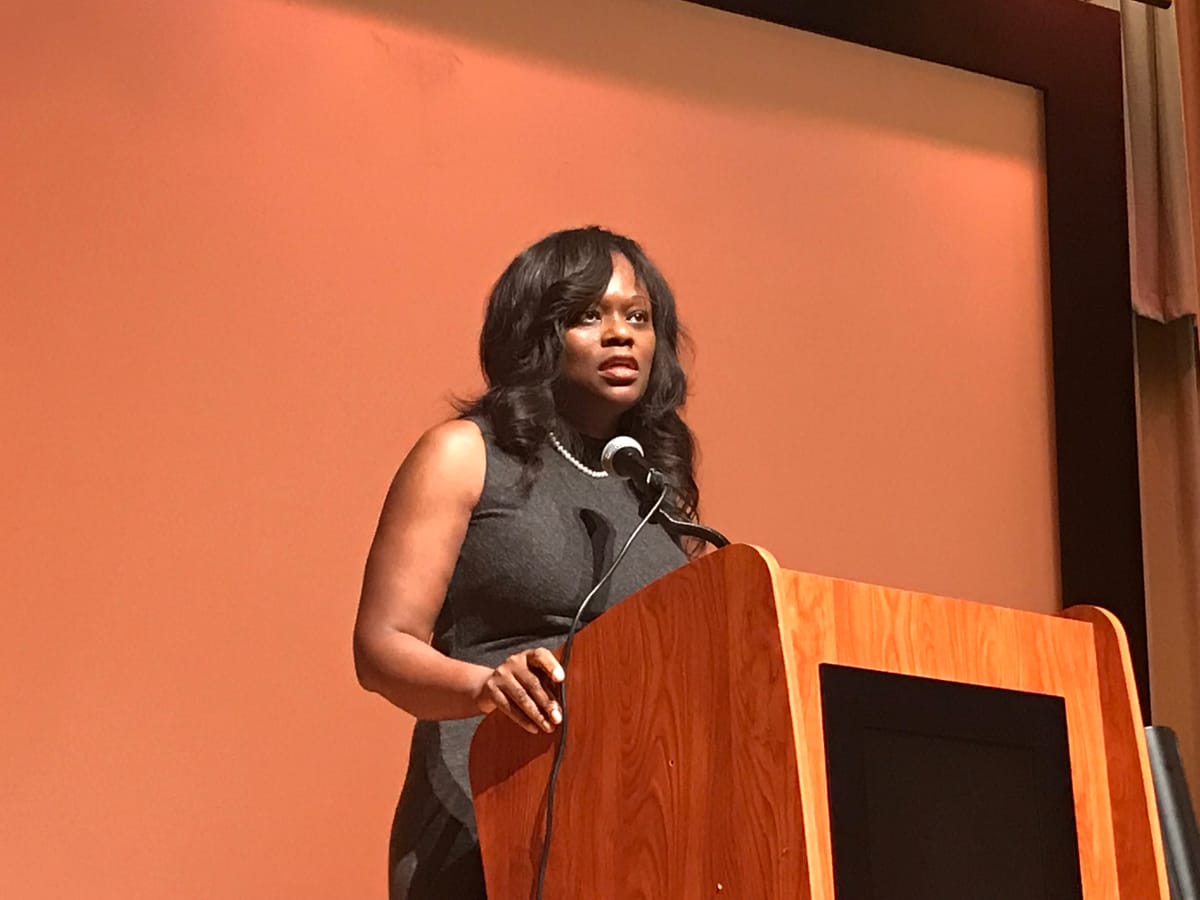Brooklyn Democratic Party Accused of Pushing “Undemocratic” Rule Change

The Brooklyn Democratic Party is making moves to reduce its reliance on the gender binary. But some say those moves are a smokescreen for a power grab by Party leadership.
On Sunday, the party’s Executive Committee, composed of 42 elected District Leaders, voted to create gender-neutral County Committee seats across the borough. County Committee is the most local level of party governance in New York, and the Committee’s nearly 5,500 seats are currently split evenly between male and female members.
The proposal came out of a task force created by Party Chair Rodneyse Bichotte earlier this year after six non-binary candidates for County Committee attempted to sue the party to force it to drop its gendered committee designations.
The new rules create four at-large, gender-neutral County Committee seats in each Assembly District. The rules would apply to the 2020-2022 session, leaving the task force to create a more permanent fix in the future.
Several District Leaders and members of the task force said they voted against the proposal because it enables the Executive Committee to fill the new positions, as well as over 2,000 additional vacant County Committee seats, by appointment, taking the power away from the County Committee itself. They said the party’s leadership was using gender equity as a cover to consolidate power and disenfranchise rank-and-file party members.
“The leadership of the party pushed a resolution claiming inclusion of non-binary people, but mixing it up with a very dramatic change of traditional rules that continues to consolidate powers to District Leaders,” said Samy Nemir-Olivares, a District Leader from Bushwick who sits on the task force but voted against the proposal. “It has been frustrating and infuriating to feel our community is being used to shovel through an undemocratic rule change.”
The new rules also allowed just a few days to nominate and appoint members for the new seats, raising suspicions among some participants that party leadership was looking to fill the seats with loyalists.
“If it’s not clear that the entire premise of including TGNCNB people into county committee is a sham to justify the power grab, District Leaders were only given TWO DAYS to fill these seats after their creation,” said Jesse Pierce, another District Leader who also served on the task force. “This is not true inclusion and it is offensive to an entire community of people who simply want to participate in our local Party and politics.”
Lambda Independent Democrats, an LGBTQ political club whose president, Jared Arader, serves on the task force, also issued a statement criticizing the new rules.
Bichotte did not respond to a request for comment, nor did several District Leaders who voted in favor of the rules. In a press release about the task force sent by the party last week, Bichotte said simply that, “While a permanent solution is forthcoming, this resolution will enable greater participation in our party to begin immediately.” The press release also quoted District Leaders Josue Pierre, Lisa Fane, Jennifer Faucher, and Aaron Maslow, who is also the task force chair, as supporting the resolution, though their comments did not specifically address the voting rules.
One member of the task force, the activist T.S. Candii, expressed support for the proposal and said she was comfortable allowing the Executive Committee to fill the seats.
District Leader Julio Peña said that, at the Executive Committee meeting, the voices of dissenting District Leaders were dismissed.
“When I and other members voiced our concerns, what I particularly found disturbing was how dismissive self-proclaimed ‘allies’ were to members of the LGBTQ community – going so far as to describe oppositional voices as nitpicking,” Peña said in a statement. “While it may not have been meant as such, that was deeply hurtful. I’ve had to endure a lot of toxicity as a queer person of color, but what I won’t do is be used as a bargaining tool to power grab votes, during a pandemic, in the name of inclusion.”
The Executive Committee approved the rules by a vote of 25-12, with two members abstaining, despite an attempt by some leaders to refer the resolution back to the task force for further study.
The split vote was yet another illustration of the increasingly visible divide between progressive activists who have pushed the Brooklyn Democratic Party to be more transparent, and the establishment that has resisted reform.
The dispute over the new gender equity rules comes as the party is fighting a separate lawsuit filed by members who say the party violated state election law when it used coronavirus as an excuse to cancel its County Committee meeting, even though parties in other boroughs had found ways to host their meetings virtually.
“With this vote, the Party’s Executive Committee is yet again showing that their vision for County Committee is using the Committee as a tool for their own power — and not for the benefit of Brooklyn Democrats,” said Caitlin Kawaguchi, Communications Director for New Kings Democrats, a progressive-minded political club that helped organize the lawsuit and has been at the center of many disputes about the party’s operations. “It’s clear that they want to ensure that if they’re required to hold the Organizational Meeting, elected County Committee members can’t have any real input or power at the meeting.”
The internal fights have also touched on the party’s budget, its financial disclosures, and even its ballot petitioning process.
With regards to what will happen after the 2020-2022 session, the task force has floated several additional proposals and will host two virtual hearings on December 7th and 8th to allow for public comment.





